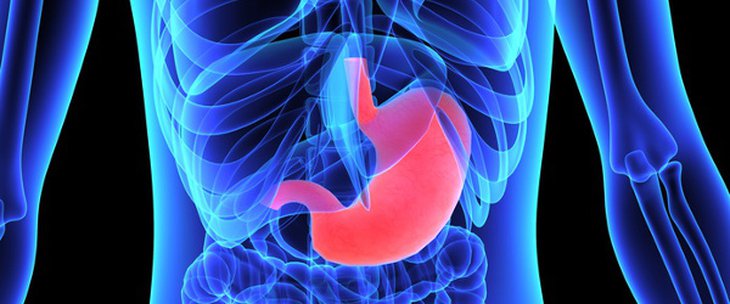About Treatment
WHAT IS SLEEVE GASTRECTOMY?
Sleeve gastrectomy - this bariatric surgery is usually performed using a laparoscopic, minimally invasive technique. During the operation, the surgeon removes 75 percent of the stomach. This causes the stomach to take the shape of a tube or "sleeve" that contains less food. Originally developed for weight loss in people with a BMI (Body Mass Index) over 40.
Sleeve gastrectomy does not implant a foreign body, as in the case of an adjustable gastric band, and there is no complex bowel remodeling, as in gastric bypass surgery.
Most patients find that after a short period, they comfortably eat common foods, including meat and fibrous vegetables. Unlike adjustable gastric band and gastric bypass, sleeve gastrectomy is a completely irreversible procedure and cannot be reversed.
The weight loss effect after this surgery is due to two factors:
- Smaller stomach volume provides faster satiety. Normally, the stomach of a healthy person has a volume of 1000 cm³. After the operation - about 150-200 cm³. As a result, saturation occurs when you take five to six times smaller portions.
-Removing part of the stomach lowers the level of the hormone ghrelin in the blood, also called the "hunger hormone". After surgery, many find that they are much less hungry after gastric sleeve. Ghrelin also plays a role in blood sugar metabolism, which is why people with type II diabetes often see an immediate decrease in their need for diabetes medications (especially oral ones) after sleeve gastrectomy.
-
Duration of Procedure
The duration of this procedure is from 30 to 60 minutes.
-
Result
Most of the weight loss is achieved in the first 2 years (weight loss> 70% with a BMI less than 50)
Sleeve gastrectomy has been used as the first stage of a two-stage procedure for patients at high risk and BMI> 60, but due to its simplicity and favorable results, it is now increasingly being proposed as a separate primary procedure.
For many categories of patients of different ages, sleeve gastrectomy is recognized as more preferable than gastric bypass surgery.
This surgery will be a good solution for patients with active lifestyles and for those who travel frequently. This surgery usually results in rapid and predictable weight loss, which is beneficial for those seeking weight loss in preparation for orthopedic procedures such as knee and hip replacements and spine surgery.
Gastric sleeve is also suitable for patients with Crohn's disease or other bowel diseases, and for patients taking immunosuppressive drugs or planning an organ transplant.
In other patients, the decision to perform sleeve gastrectomy (instead of gastric bypass surgery) is already made during surgery. Reasons for making this decision during surgery include an overly large liver or extensive scar tissue that would make the gastric bypass procedure too long or unsafe.
Compared to other bariatric procedures, sleeve gastrectomy is a more physiological treatment. It is not accompanied by malabsorption, pathological and blind tract formation, or foreign body implantation.
Sleeve gastrectomy causes rapid and profound weight loss comparable to gastric bypass surgery. Patients can expect to lose 50% or more of their excess weight within three years.
Hormonal changes by removing a large surface of the stomach after the procedure help patients feel full, eat less, and also eliminate the manifestations of diabetes.
The number of complications in the first 30 days with this procedure is lower.
This is a pharmacologically friendly operation. Aspirin and other NSAIDs are well tolerated when taken orally. You can also continue to use combined oral contraceptives.
The indications for sleeve gastrectomy are basically the same as for other bariatric procedures. The classic criteria for defining a patient as a candidate are:
BMI ≥ 40 or BMI ≥ 35 with at least one concomitant obesity condition (cardiomyopathy, severe diabetes mellitus, etc.);
unsuccessful non-surgical weight loss attempts;
there are no medical contraindications for surgery;
Revision surgery with sleeve gastrectomy may also be required to correct one or more complications from other bariatric surgeries:
ulcers or fistulas after gastric bypass surgery;
persistent recurrent vomiting after gastrectomy with a bandage or vertical sleeve;
protein deficiency after gastric bypass surgery;
reflux after vertical sleeve gastrectomy.
Absolute contraindications include inability to tolerate general anesthesia, uncontrolled coagulopathy, and severe mental illness.
Barrett's esophagus and severe gastroesophageal reflux disease are relative contraindications.
In general, the number of contraindications for this operation is less than for gastric bypass surgery.











